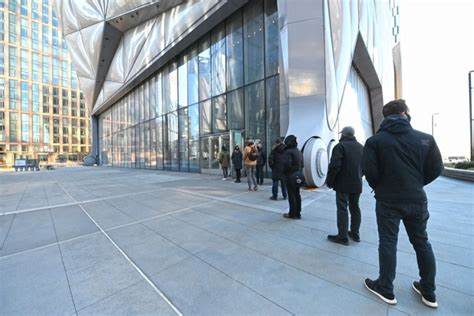
One key issue is who is being called on to aid recovery. Governments have sought expert advice from the beginning of the pandemic, but that expertise tended to come from people in science, technology, engineering and maths (STEM) – despite it being clear from the start that human behaviour, motivations and culture were key to an effective response.
There are more than 80 people who have sat on the UK Scientific Advisory Group for Emergencies – yet only a narrow range of social scientists and a single person representing the humanities, are included.
This approach needs to change. Science gave us vaccines, but SHAPE (social sciences, humanities and the arts for people and the economy) disciplines help us get to social realities, such as vaccine hesitancy. Humanity’s insight is more robust when STEM and SHAPE come together.
In January last year, without knowing how 2020 would play out, I wrote, “Epidemics are social as well as biological phenomena.” Once Covid-19 hit, governments were slow to advocate for face masks – even as many social scientists, doctors and public-health researchers made the case for them.
Part of the reason was that policymakers were overly focused on evidence from randomised control trials, rather than the observational, qualitative evidence that social sciences are steeped in. And had governments been set up to listen to the advice of historians, they could have helped us to think about what worked in past pandemics.
The good news: many governments are getting the message. Think-tanks and civil-society organisations from Bangladesh to Kenya are pulling together social-data insights. US President Joe Biden has appointed sociologist Alondra Nelson as deputy director for science and society at the White House Office of Science and Technology Policy.
In September 2020, the UK government’s chief scientific adviser asked the British Academy, which I head, to draw on SHAPE disciplines to review the pandemic’s social impacts.
The academy spent six months synthesising evidence; we mapped more than 550 relevant research projects and used workshops and written submissions to draw on the views of leading SHAPE scholars, early-career researchers and representatives of national academies and learned societies. We traced the contours of Covid-19’s long shadow and framed findings not just so decision-makers understand the losses, but so they can act to reverse them.
We structured our review to align with policy workflows in three areas: (1) knowledge, skills and employment; (2) communities, culture and empowerment; and (3) health and well-being. In each area, we explored governance, trust, cohesion, inequalities and sustainability in the United Kingdom. However, these issues are global. For example, years of progress in alleviating global poverty have been reversed.
One clear conclusion of the review is that the online life that so many of us now live means governments need to consider digital infrastructure as a crucial public service and to focus on reducing or eliminating ‘digital divides.’ Losing access to education exacerbates existing socioeconomic inequality, limiting access to digital skills and impeding progress towards a prosperous, high-skilled economy.
The UK lockdown has highlighted the growing value of public spaces, as well as their scarcity – especially where lower-income communities and ethnic minority groups live. This is true in many nations around the world.
The importance of community resilience stood out, too. Charities, places of worship and community groups stepped in to meet basic needs – such as food, sanitation, rent payments and combatting loneliness. Governments tend to focus on physical infrastructure, such as roads, energy systems and shopping centres, as a means of ‘community development’.
But social infrastructure also needs investment to support communities. UK-charity leaders have rightly criticised politicians for spending billions on pandemic response but earmarking only a tiny fraction for social change.
In the United Kingdom, we have seen declining trust in the national government, weakening its ability to influence public behaviour to stall future public-health crises. Solutions should integrate across all levels of government. Policies that are only national or only local will not be enough to ease inequalities: they must work across levels and support each other.
For example, town centres that are based on retail are suffering; stronger, more-responsive local governments might repurpose surplus commercial space for affordable housing and community-led projects.
Governments need to confront the realities that SHAPE fields address. Pandemics expose the existing fault lines in society. Covid-19 has uncovered, exacerbated and solidified existing inequalities. We need better linkage of health and social data to understand what is driving these inequalities and the best ways to remedy them.
The evidence base is growing, but now policymakers must act. The danger is that they are exhausted. Responding to the health crisis has taken up their bandwidth, and they risk running out of energy and vision to respond to the societal challenges the pandemic has posed.
We are living in the decade of Covid-19. We need to use data and evidence from SHAPE disciplines to adequately respond.
- A Nature magazine opinion/Hetan Shah











